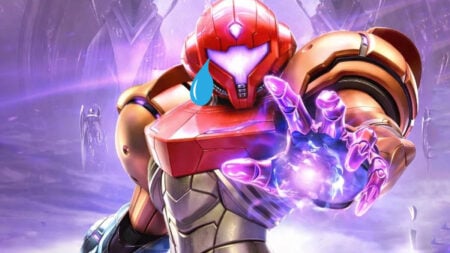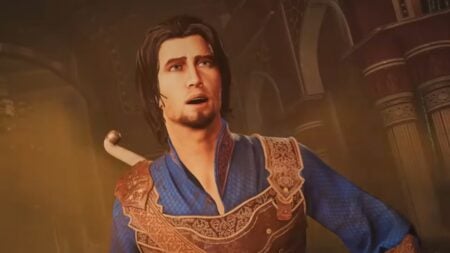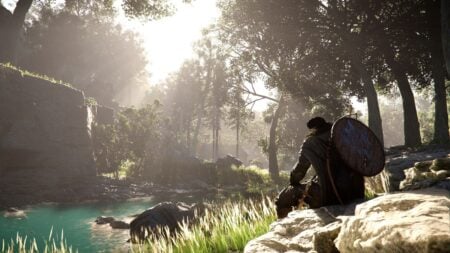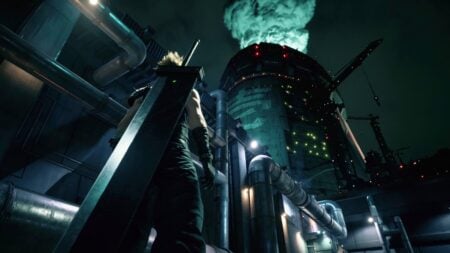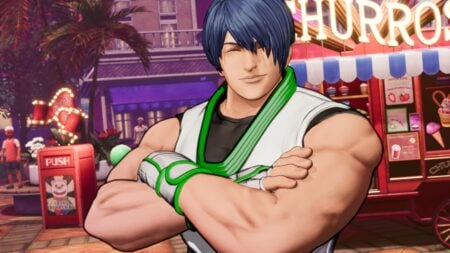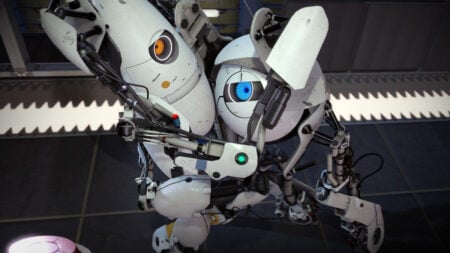Skip To...
The legacy of the Final Fantasy series within gaming has made it inseparably associated with the genre of JRPGs. These games have moved the industry, defined many iconic moments in its history, and created countless unforgettable memories for players around the world. The series goes all the way back to the NES days and has been a constant, giving it a lot of main series titles to rank against each other, which makes things very complicated. Nevertheless, there are qualities to each release, be it story, gameplay, visuals, or impact, that can be measured and condensed down into a ranking of every Final Fantasy main series game.
20. Final Fantasy 13

There’s really not a game that can go at the bottom of a list like this without generating some controversy. Final Fantasy 13 certainly has its cult following that swears it’s an over-hated entry to the series, so it may be worth trying for inexperienced newer fans who may find themselves enjoying some of its stronger moments.
For this ranking, though, the weaknesses just far outweigh any strengths present in Final Fantasy 13. It presents all of the needlessly complicated story and flashy visuals the series is known for, with next to none of the interesting combat and detailed worldbuilding that really is the glue holding the vast majority of the rest of the series together. Without those things, this game collapses in on itself through a flimsy foundation.
19. Final Fantasy 11

Square Enix’s first crack at an MMORPG in the Final Fantasy series contains a lot of ideas the franchise had never seen before and a lot of Y2K-era MMORPG tropes that, at best, are nostalgic for those who remember it and, at worst, pretty terribly clunky and confusing for the uninitiated.
Players who have spent a lot of time with Final Fantasy 11 may contest its place on this list, but the problem is that it’s just an old MMORPG without much to offer in the modern day for new players who might be curious about the experience. It’s more a novelty than anything. It was not poorly made by any means, just a product of its time.
18. Final Fantasy 1

The original Final Fantasy is important in any ranking of every game in the series for a number of reasons. Firstly, it’s the reason the series exists at all, which is obviously important. Second, it’s essential to note that, even beyond the series, it is one of the most significant NES games and JRPGs of its era.
With that being said, does Final Fantasy 1 hold up to the vast majority of its subsequent releases, even with the updates provided by the recent Pixel Remaster? Not quite. For hardcore JRPG fans, it remains essential, but for gamers who aren’t big on the antiquated mechanics of this era, Final Fantasy 1 has all of them and none of the refinement that comes from newer entries. It’s a game that commands respect, even if it’s objectively dated.
17. Final Fantasy 2

Final Fantasy 2 takes the groundwork made by its predecessor and tries to be something different. Unfortunately, it can fall a bit short due to some of these differences, like the strange individual stat leveling system that ramps up the grinding that was already notorious in this era of JRPGs up to a new level.
Similar to its predecessor, its story is also fairly run-of-the-mill. It is worth remembering and revisiting for its more unique aspects, but it falls below average in comparison with almost everything that came after.
16. Final Fantasy 13: Lightning Returns

Final Fantasy 13: Lightning Returns finishes off the trilogy on a strong enough note to be worth recommending, but unfortunately doesn’t quite keep the momentum from Final Fantasy 13-2. For many, it has the strongest RPG elements of the entire Lightning trilogy, and it’s hard to deny that the combat here feels the most refined and uniquely satisfying.
Where its flaws begin to sorely poke out is in its limited-time mechanic intertwined with a convoluted story that serves as a less-than-satisfying closer. Square Enix tried to do something Persona-like with the time limit here but failed to note what Atlus does to balance the urgency and the downtime. It’s a flawed finish, but still one worth playing.
15. Final Fantasy 3

Final Fantasy 3 is the last game in the series for players who might want a turn-based JRPG in the style of this franchise with de-emphasized story. Nothing in Final Fantasy 3 holds the sentiment or complexity of the stories that would begin to be told from Final Fantasy 4 onwards, which can be as much of a turn-off for the game as a potential selling point for those who might crave more of the battles and exploration with less of the clicking through text.
It’s also the entry that introduced the job system to the series, making it a naturally more rudimentary version here than what would come later, but still a fun feature to play around with. It doesn’t carry the weight or identity of later entries, but it is still a fun traditional JRPG, and its innovations are worthy of admiration.
14. Final Fantasy 7 Remake

Square Enix has spent an obscene amount of time taking perhaps its most iconic game and expanding its story to incredible new depths. The amount of effort put into what is supposed to eventually be a trilogy of new Final Fantasy 7 titles is commendable, but it does beg the question of whether or not all of this effort can ever translate into a more satisfying experience or a better story than the original.
The answer for many is no. Final Fantasy 7 Remake is in no way a failure, but it’s also not Final Fantasy 7. Maybe that can be called nostalgia bias, maybe it can be called a misunderstanding of what makes Final Fantasy 7 so iconic, or maybe the idea of taking a game’s story that was already three discs long and expanding that into three 30+ hour games just feels like the definition of spreading too thin. Either way, Final Fantasy 7 Remake is a fun experience that will forever be compared to one of the unkillable juggernauts of gaming.
13. Final Fantasy 15

Final Fantasy 15 is a strange point of the series to talk about. Its story is notoriously complicated, even by Final Fantasy standards, and was unfortunately cut down short of a DLC that was primed to potentially make it all make sense. Mechanically, it’s all over the place, combining all the thrills of whizzing across the vast landscape, fighting random beasts lurking around any potential area, with some truly dull moments, a flying car that feels horrendously reminiscent of the Apollo 13 mission, and an ending that goes right back to the hallway simulator action that killed Final Fantasy 13.
Still, somewhere through all of the muck this game has, there’s a lot of fun to be had. It has an almost unexplainably entertaining quality that makes its rough edges feel more palatable. It’s good that it seems Square Enix has learned from the mistakes of this game, but Final Fantasy 15 is by no means a failed entry.
12. Final Fantasy 10-2

Coming off Final Fantasy 10‘s intensity, chaos, and heavy emotional depth, the tonal shift that Final Fantasy 10-2 takes can feel more than a little jarring at first. Once players get into the rhythm of the game, though, they’ll find its fast-paced combat and more lighthearted attitude to be a total joy that gives a surprisingly new perspective on Spira.
The story’s focus on lighter themes and pop idol aesthetics feels disconnected from the series’ usual epic scope, but that can be a negative as often as a positive and may affect some players’ experiences more than others. Is it as emotionally resonant as Final Fantasy 10? Not by a long shot, but there’s nothing else on this list quite like it.
11. Final Fantasy 14
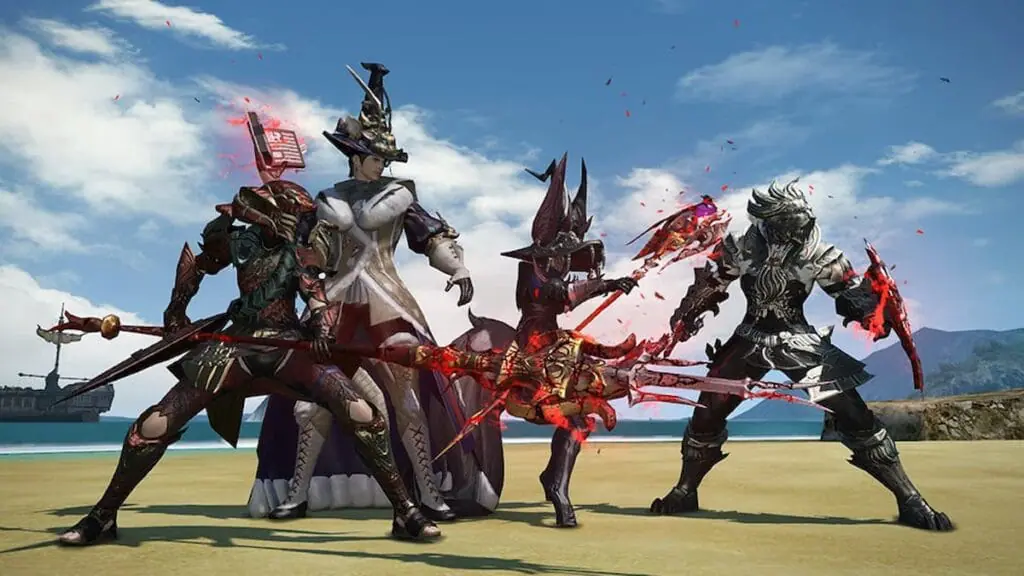
This game is so popular among MMORPG fans that there’s an entire meme around how much those players proselytize playing Final Fantasy 14 to other gamers. The genre isn’t for everybody, but those who easily fall into this type of game will almost certainly be immersed hard into the world created here and find themselves with an incredible amount of content to explore in Eorzea.
It makes sense to primarily judge Final Fantasy 14 based on its current state, which does have it standing as one of the best modern MMORPGs easily. It doesn’t feel fair to most other titles on this list to solely judge it on that state, however. FF14 launched as an abysmally broken game, one of the biggest embarrassments in the history of Square Enix, and that’s a title no other game here holds, even if it has recovered its image in the years since.
10. Final Fantasy 5

Final Fantasy 5 is, in some ways, a step backward from its predecessor, particularly with its story, which unfortunately treads the more generic ground of the earlier games in the series. In other ways, the game takes a step forward, mostly by bringing back the job system and expanding on it in incredibly entertaining and complex ways.
When it comes to things like combat and exploration, though, Final Fantasy 5 mostly just plays like Final Fantasy 4, which isn’t a bad thing. It makes them both extremely entertaining experiences. It’s just hard to hold this game in the same high regard, but it’s still up there.
9. Final Fantasy 13-2

Final Fantasy 13-2 offers improvements in every imaginable way over the game that began the Lightning trilogy. It offers far more exploration (The original really didn’t have any to begin with), improved RPG systems in every aspect like Paradigms and the Crystarium, and wraps it up in combat that feels a lot more satisfying, largely due to the improvements made in the aforementioned two areas.
The time travel aspect of the game is fairly controversial among fans, which ties into the fact that this game’s story is disjointed at best. A confusing Final Fantasy story really isn’t anything new, though, and all the other weaknesses presented by Final Fantasy 13 are renovated to feel much stronger here.
8. Final Fantasy 4

If the first three games in the franchise are the solid foundations for what’s to come, Final Fantasy 4 is the outline that Square Enix would use to begin to define its most iconic era. This is the game that introduced the Active Time Battle system, signaling a dramatic shift towards more dynamic play for future Final Fantasy entries and rippling out to the whole world of JRPGs.
Ultimately, while its story and battle system deepened in complexity in comparison to the past, the series still continued to push it farther from here. The refinement this game has makes it truly the first timeless game in the series, though.
7. Final Fantasy 16

Final Fantasy 16 honestly doesn’t have any right to feel as fresh and dynamic as it does. This game could have been a more refined version of what fans got in Final Fantasy 15, and most fans would probably have been ok with that, but this goes above and beyond to overhaul that scenic, explosive combat, add a ton of new battle and RPG systems, and present a story that is thankfully digestible enough this time around that the emotional moments manage to fully hit home in the way they should.
It’s tough to rank Final Fantasy 16 next to its peers at the moment due to its recency. There needs to be more time for the dust to settle, all the remaining content to be released, and proper reflection to be made before the game can be more definitively ranked. Right now, though, it seems like it’s going to stand up there with some of the best when all is said and done.
6. Final Fantasy 9

After a run of titles exploring more steampunk and futuristic settings, Final Fantasy 9 returns to a more traditional fantasy backdrop, but with the modern advances of the series up to that point, it feels incredibly fresh.
While some of the parts of Final Fantasy 9 could be criticized for feeling a bit derivative, its story is one of the most powerful ever told in the franchise. The explorations of identity and existentialism, along with all-time fan-favorite characters like Vivi, make the adventure on Gaia an all-time classic.
5. Final Fantasy 12

The combat of Final Fantasy 12 is truly one of a kind. It’s so strange that it doesn’t seem like Square Enix has ever even been interested in returning to it, which on the surface may seem like a critique, but once the player gets into the swing of the game, it becomes very apparent how strategically engaging this system is. It might not suit everyone, but it’s definitely the calling card of this particular era.
The setting and story of Final Fantasy 12 are rich and nuanced, providing possibly the most open experience in the series up to that point, which is complimented very well by visuals that still manage to impress today, if for no other reason than just the incredulousness of modern onlookers thinking “This looks like this and came out in 2006?”
4. Final Fantasy 7

The Final Fantasy series is full of titles that have been praised and discussed extensively, but Final Fantasy 7 truly stands above the rest as the game that it just feels hard to write anything about that hasn’t already been said. The futuristic fantasy setting that it provides remains unreplicable today, and the story found within that world has a timeless quality that makes the tale of FF7 as relevant in modern times as it was in the late ’90s, if not more so.
There are certainly dated aspects of Final Fantasy 7 that, again, have been discussed and written about to death at this point. It’s far from a game that’s impossible to enjoy without a healthy dose of nostalgia, though. Newer Final Fantasy fans are continuing to discover and applaud this iconic work to this day.
3. Final Fantasy 8

Final Fantasy 8 deserves its place right near the peak of this list alongside Final Fantasy 7 for a number of reasons. It does a surprisingly coherent job of conveying its time-jumping storyline (Take that, Final Fantasy 13-2) and is full of characters whom it manages to humanize despite many being seemingly surface-level hateable antagonists early on.
The Junction system sets this game apart in terms of its JRPG tropes and combat, offering players unprecedented control over their party’s abilities. It’s a game that players have spent hours tweaking and mixing to attempt hundreds, if not thousands, of various combinations, using an amazingly open customization system. Ultimately, it feels almost impossible to rank FF7 and FF8 against each other in a way that feels justified in either direction, even less so in a way that won’t get fans of the series ready to type in all caps, but what’s inarguable is that they’re both groundbreaking classics.
2. Final Fantasy 10

Some infamously hilarious voice acting aside, the story of Final Fantasy 10 is one of the best in the series. Similar to the other games topping this list, there’s a timelessness in the philosophical and religious themes explored through Tidus and crew’s heartbreaking pilgrimage across Spira.
It’s a game with humor and tears wrapped up in some, a surprisingly fresh return to a more traditional turn-based combat system that has all the necessary updates to make this entry not feel like a regression back to the SNES days. Plus, it has Blitzball, and there’s not a lot to hate about Blitzball.
1. Final Fantasy 6

Final Fantasy 6 deserves to stand at the pinnacle of the JRPG series for a number of reasons. It’s revered for the groundbreaking storytelling it brought to an era of games where stories of this nature had just begun to pop up, and it still stands today as leagues above many modern gaming narratives. It’s visually stunning, with iconic sprites dotting the ruinous, steampunk landscapes that are beautifully illustrated to show off this place destroyed by a war between machines and magic.
Final Fantasy 6 simply encapsulates everything this series is known for, operating to its highest level. The story, visuals, party management, and combat were all innovative in their time and similarly hold up as an immensely entertaining experience today.


